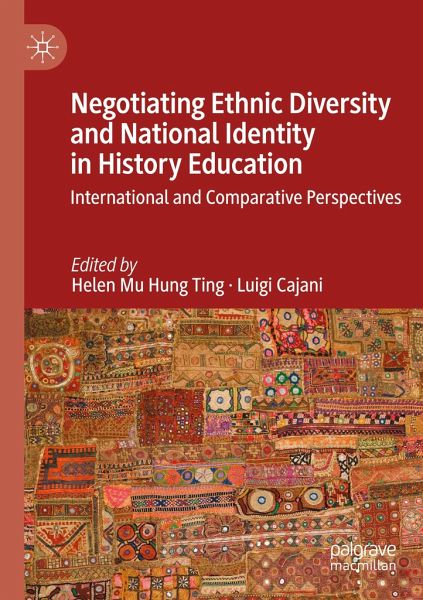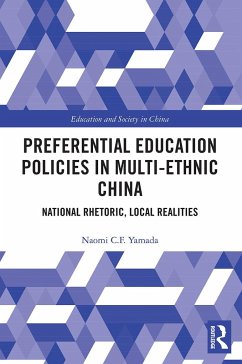
Negotiating Ethnic Diversity and National Identity in History Education
International and Comparative Perspectives
Herausgegeben: Ting, Helen Mu Hung; Cajani, Luigi
Versandkostenfrei!
Versandfertig in 6-10 Tagen
121,99 €
inkl. MwSt.

PAYBACK Punkte
61 °P sammeln!
This edited book explores the problems and challenges of negotiating the representation of ethnic minorities within history education. It investigates how states balance the (non-)acknowledgement of the reality of cultural or religious diversity, and the promotion of a point of convergence in history education to foster national identity. Shifting our attention away from the intractable challenges posed by post-conflict countries for reconciliation, the contributors draw attention to the need to explore ways to prevent or pre-empt conflicts and exclusion through history education, which could ...
This edited book explores the problems and challenges of negotiating the representation of ethnic minorities within history education. It investigates how states balance the (non-)acknowledgement of the reality of cultural or religious diversity, and the promotion of a point of convergence in history education to foster national identity. Shifting our attention away from the intractable challenges posed by post-conflict countries for reconciliation, the contributors draw attention to the need to explore ways to prevent or pre-empt conflicts and exclusion through history education, which could contribute to developing a more sustainable culture of peace. Drawing on a wide range of contexts and sources, this book asks how history education could contribute to forming critical, historically informed, and committed young citizens. The book will be of interest to students and academics working on themes such as nationalism, citizenship, ethnicity, history education, multicultural education, peace studies and area studies, as well as practitioners in the fields of history, social studies, civic or citizenship.












